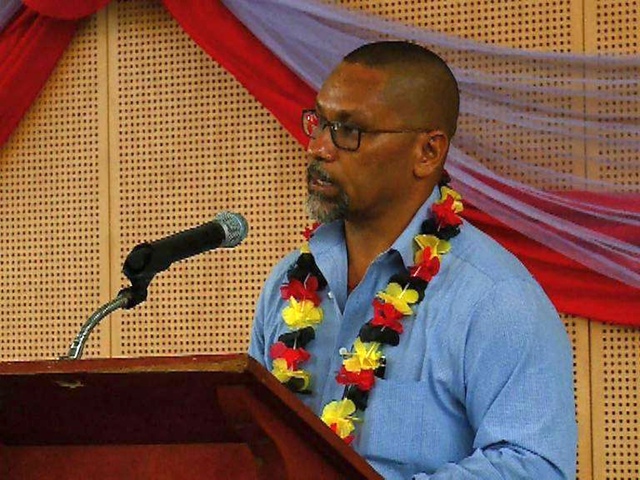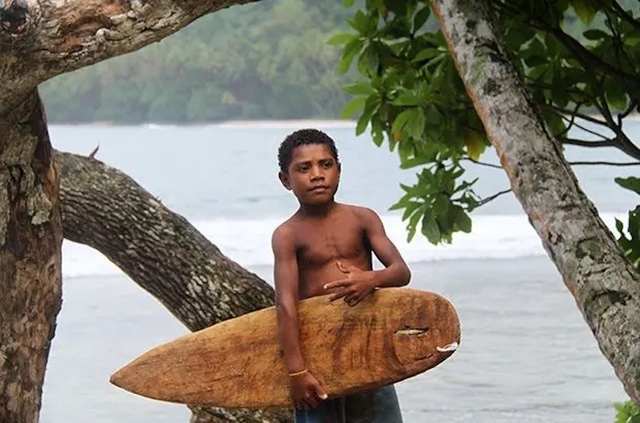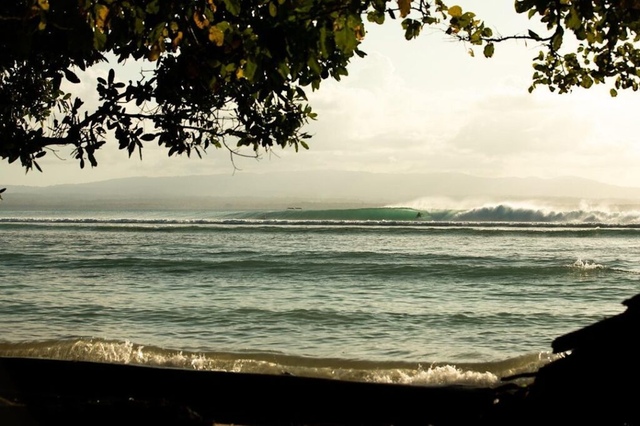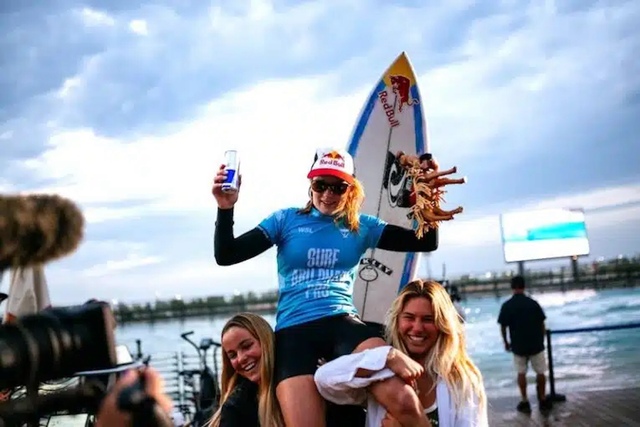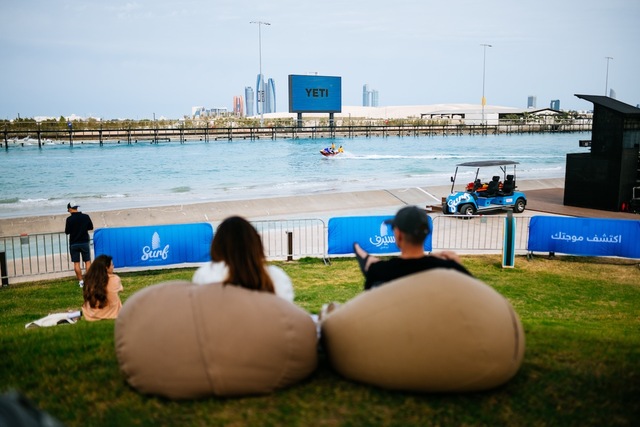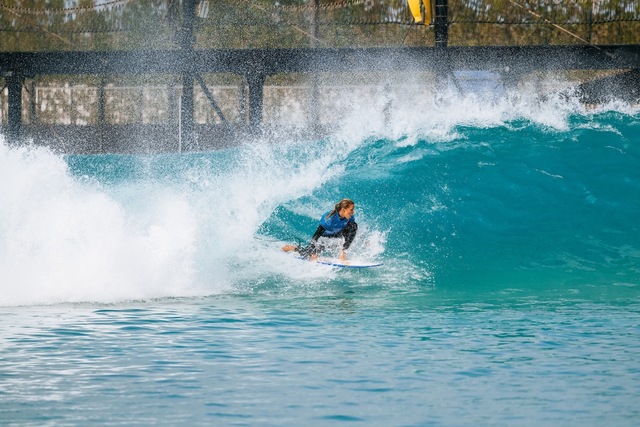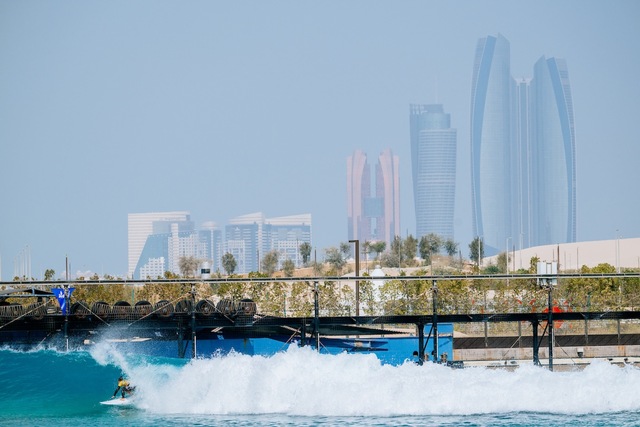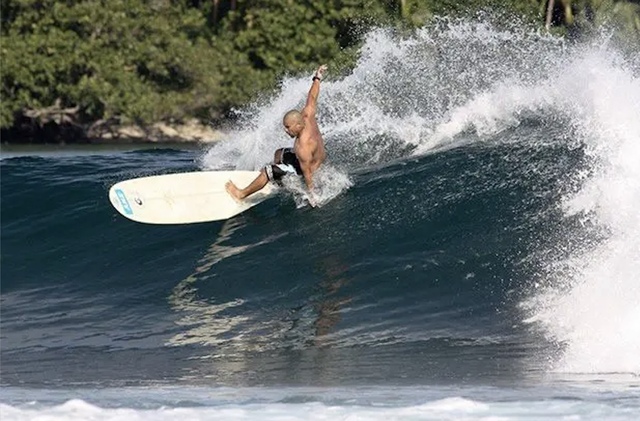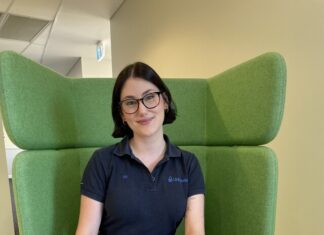Late last year Papua New Guinea’s enigmatic surf community leader Andy Abel travelled to London to receive the order of a Commander of the British Empire (CBE) from King Charles himself.
This is quite possibly the highest honour ever awarded to a surfing administrator anywhere in the world, and to think it came from 36 years of creating in wild and woolly PNG, a country not widely known for the quality of its surf breaks, a global model for how surf travel can be sustainable and respectful of locals, in stark contrast to other islands in the vicinity, notably Bali!
But for anyone who has known the founding father of the Surfing Association of PNG since its inception in 1989, or followed the progress of his various campaigns, this son of a knighted PNG political leader and grandson of one of the first missionaries on Papua, is a man for whom no accolade seems too high.
And now Andy is coming to next month’s Noosa Festival of Surfing to celebrate the creation of an Australian chapter of his latest endeavour, the Pink Nose Revolution charity.
Noosa Councillor Tom Wegener, who worked with Andy on a program to reignite traditional carving skills and build wood surfboards in PNG villages, and who will be the MC at a charity dinner to launch the Pink Nose Revolution, says of his friend: “I think Andy Abel is an exceptional leader, a guy who saw what was happening in surfing and said, ‘I am not going to follow the rest of the world down the wrong side of colonialism and allow rich people to come in here and profit from our resources.’ He empowered the local surfers to take control of their destiny in many different ways. He’s doing things no one else is doing in surf locations around the world, and singlehandedly he’s turning PNG’s surfing destinations from places of poverty to models of sustainable surfing.”
Since establishing PNG’s national surfing governing body, Andy has travelled to every recognised surf region and selected seven of them to be the cornerstones of his Surf Management Plan, which operates under the “Abel Reverse Spiral Model”, which is a method of sustainable tourism shaped by traditional PNG culture. Its name comes from the principle that influence must ‘spiral up’ from host communities, rather than ‘spiral down’ from external stakeholders, such as business and government agencies. Says Andy: “It’s about respect.”
Tom Wegener saw the management plan in action when he visited in 2017: “We paid our daily levy (then $12, now $15) to Tupira Surf Club which allowed only 12 visiting surfers maximum at any time. We surfed with the local kids and they were wonderful, stoked and sharing their waves. Now you could take 20 visitors instead of 12 and there’d be plenty of waves for them, but the kids would be pushed out, so that’s not going to happen. I think Andy has achieved what he has through being genuine and being able to communicate with all kinds of people. What he’s pushing in surfing is that very Australian attitude of giving everyone a fair go, and we don’t really expect that in PNG with its reputation for violence.”
As Andy told Swellnet: “At the end of each season, a portion of the accumulated levies are paid out in direct cash payment to respective clans who own the surf breaks, and a mandatory 20 per cent of funds are set aside in a community trust fund for designated community projects which SAPNG administers.”
One of the early problems of running surf contests for the locals was the availability of surfboards, so Andy developed a charitable program which resulted in containers of boards being sent from Australia and then being distributed equally by gender around the remote surf villages. After one of these deliveries, Andy received a phone call from a distraught female surfer when he was back in his Port Moresby office. “Andy,” she sobbed, “those surfboards you left with us, 10 for the boys and 10 for the girls, right? Well, the boys have taken them all and we have none!”
Andy: “So I am sitting there in Moresby and thinking how can I be the policeman to distribute boards equally around this country of mine and I had a brainwave.” He decided to use the patriarchy against itself by painting the front half of half the boards fluorescent pink. “I made it very clear that any boy riding the pink-nose board was a girl. Now, not one single guy will touch those boards as they do not want to encroach on their masculinity or their warrior status.”
Painting the noses pink was also the genesis of a bigger idea, using the sport of surfing to “educate the young and reform the old” to stamp out gender-based violence and inequality. The PNR was launched at the WSL longboard tour event at Tupira in 2017. Now it has spread to more than 40 national sporting associations in PNG, and its Australian launch will take place in Noosa, perhaps the most gender-equal surf town in the country and a good model for the rest.
The first formal event for PNR will be a charity dinner on Friday 21 March at the Sunshine Beach SLSC. The evening will run from 6pm to 10pm. Tickets are $150/person (+ GST + booking fee). For further information contact John Finlay (john@worldsurfaris.com) or visit noosafestivalofsurfing.com
Rub a dub dub
36 men and 18 women in a tub. In Abu Dhabi, where, for the first time in a 35-year career running world tour events, my old buddy Renato Hinckel had to pause half an hour for a desert sandstorm to pass. I only watched finals day, which had its moments, but I reckon I’ve found a cure for my WSL addiction. Put the whole tour in tubs. Italo won the blokes, Caity the ladies, both deserved. Pickles got a second and Jack and Ethan thirds. I’ll let the pictures tell the story.

